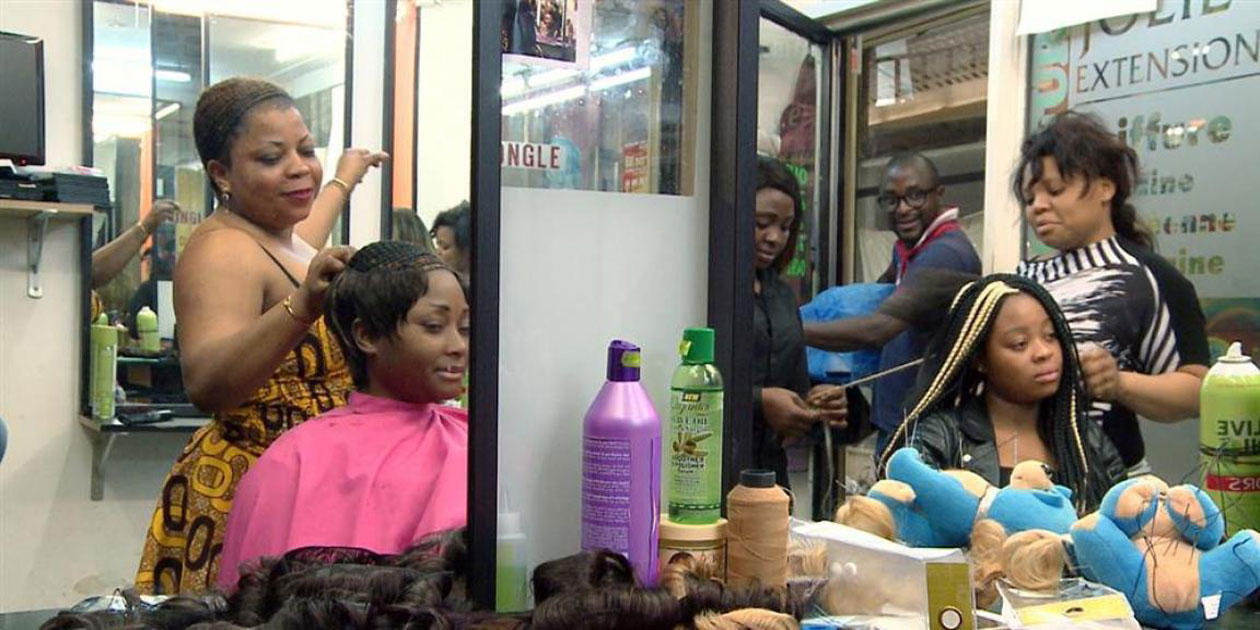Filmmaker Rosine Mbakam is invited to step inside a Brussels salon, Jolie…
Prism

- Description
- Reviews
- Citation
- Cataloging
If you are not affiliated with a college or university, and are interested in watching this film, please register as an individual and login to rent this film. Already registered? Login to rent this film. This film is also available on our home streaming platform, OVID.tv.
Is the technology of photography and motion pictures inherently racist?
For PRISM, Belgian filmmaker An van. Dienderen invited Rosine Mbakam, from Cameroon, and Eléonore Yameogo from Burkina Faso, to work together on a film in which the differences in their skin color, and experiences as filmmakers, serve as points-of-departure to explore this provocative question.
Invented and standardized with white skin in mind, “the aesthetics and emulsions weren’t created for us,” the film director and actor Sylvestre Amoussou says in PRISM. And that underlying issue remains, even with digital technology: such white-centricity has meant that photographic media assume and privilege whiteness.
PRISM problematizes the objectivity of the camera and its inequality of power to tackle other inequalities based on skin color as well. And as the film deconstructs these issues, the filmmakers are also trying to reconstruct, by creating in a collaborative manner, and self-consciously attempting to overcome these biases. The film consists of three sections, one by each of the directors:
• Rosine’s scenes are the most personal. She wonders about how she and her family have been hurt by photography’s inability to accurately portray their skin tones. She also meets with two former film professors of hers about their focus, and the biases of the film “canon,” syllabi and curriculums.
• In Eléonore’s scenes, she interviews African actress Tella Kphomahou, discussing problems she encountered with the lighting of her skin while working in Europe. They also bring Sylvestre Amoussou into their conversation to discuss his philosophy towards making films that accurately portray Black skin.
• An’s scenes are more abstract. They are shot at the Belgian film school where she teaches, and in a studio where the setting evokes a “color-test” scene, with a white man and a woman of color.
But the film is more than just the sum of the different visions of the directors: recorded zoom conversations are woven into the film in which the directors discuss the issues, their viewpoints, and the very making of PRISM itself.
To tackle the issue of racism in Western filmmaking, PRISM takes what some see as simple technical problems, and while creating powerful counter-images and methods of working, explores their insidious personal, cultural, and historical ramifications.
Related Films
Follows two young, talented Black French youth as they make their way…
Motivated by a desire to better understand her past, Rosine Mbakam returns…




